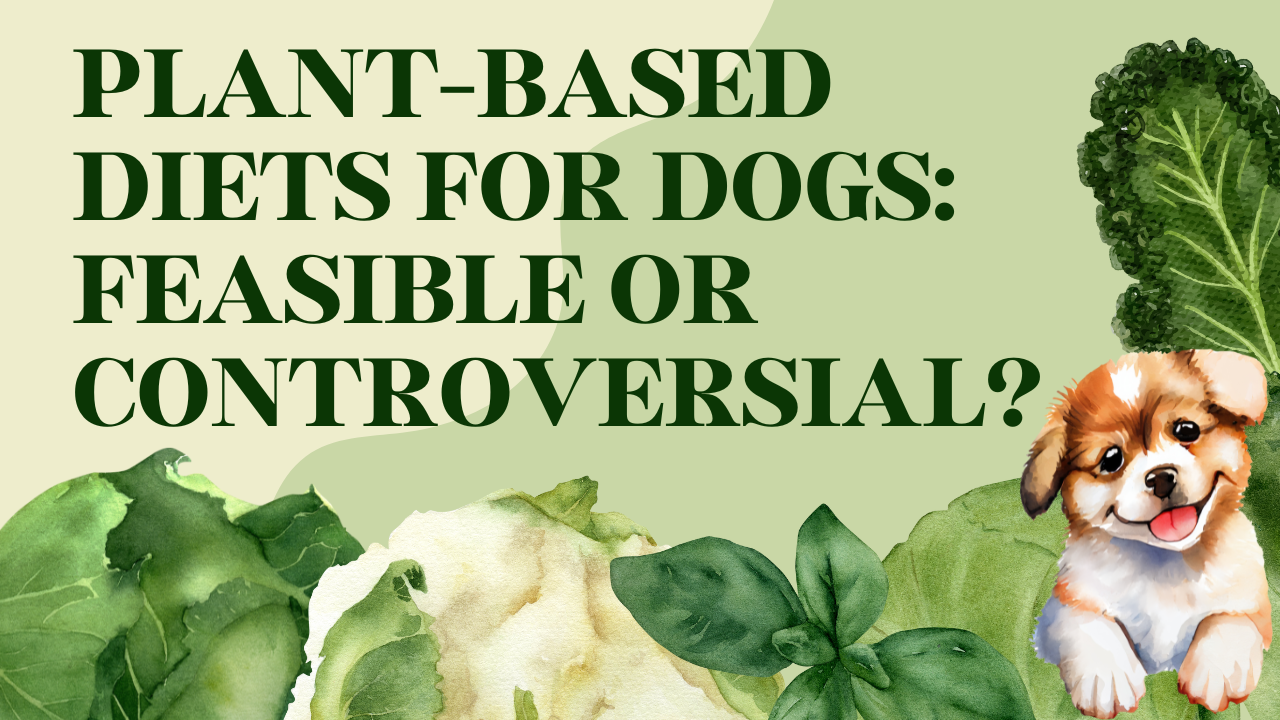Today, let’s dive into a topic that’s been sparking debates and raising eyebrows in the pet community: plant-based diets for dogs. Is it a viable option for our furry companions, or is it shrouded in controversy? Let’s explore both sides of the argument and unravel the truth behind plant-based diets for dogs.
Feasible
- Nutritional Adequacy: With careful planning and formulation, plant-based diets can provide dogs with all the essential nutrients they need to thrive. High-quality plant-based dog foods are often fortified with vitamins, minerals, and protein sources to ensure balanced nutrition.
- Environmental Impact: Plant-based diets have a lower environmental footprint compared to meat-based diets, as they require fewer resources like land, water, and energy to produce. Choosing plant-based options for our pets can contribute to sustainability and reduce our carbon footprint.
- Health Benefits: Some dogs may benefit from a plant-based diet, especially those with specific food sensitivities or allergies to animal proteins. Plant-based diets can be easier to digest and may alleviate certain health issues like skin irritations or gastrointestinal problems.
Controversial
- Nutritional Concerns: While plant-based diets can be nutritionally complete, they require careful planning and supervision to ensure all essential nutrients are adequately provided. Dogs have specific dietary requirements that may be challenging to meet solely with plant-based ingredients, particularly essential amino acids like taurine and certain vitamins.
- Digestive Compatibility: Dogs are naturally omnivores, meaning they can digest both plant and animal-based foods. However, their digestive systems are adapted to process animal proteins more efficiently. Introducing a plant-based diet abruptly or without proper transition may lead to digestive upset or nutrient deficiencies.
- Ethical Considerations: Some argue that imposing a plant-based diet on dogs goes against their natural dietary preferences and may compromise their welfare. While humans may choose plant-based diets for ethical reasons, dogs lack the ability to consent to such dietary restrictions and may not thrive on them long-term.
Finding Balance
Ultimately, the decision to feed your dog a plant-based diet should be based on careful consideration of their individual needs, health status, and ethical beliefs. If you’re considering transitioning your dog to a plant-based diet, consult with a veterinarian or veterinary nutritionist to develop a customized feeding plan that meets their nutritional requirements.
Conclusion
Plant-based dog diets may be feasible for some individuals under the right circumstances, but they remain a controversial topic within the pet community. As responsible pet parents, it’s essential to prioritise our dogs’ health and well-being by making informed decisions about their diet and ensuring they receive the nutrients they need to thrive.
So, whether you’re a staunch advocate for plant-based diets or prefer to stick with traditional options, let’s continue to prioritise our dogs’ health and happiness above all else. After all, their wagging tails and unconditional love are what truly matter most.

